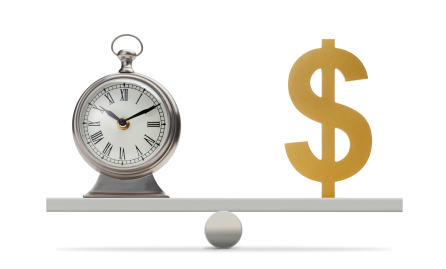A managerial economist can play a very important role by assisting the management in using the increasingly specialized skills and sophisticated techniques, required to solve the difficult problems of successful decision-making and forward planning. In business concerns, the importance of the managerial economist is therefore recognized a lot today. In advanced countries, large companies employ one or more economists. A managerial economist can contribute to decision-making in business in specific terms. Different roles of managerial economist in business as follows: Environmental Studies of a Business Firm An analysis and forecast of external factors constituting general business conditions, for example, prices, national income and output, volume of trade, etc., are of great significance since they affect every business firm. Certain importantContinue reading
Economics Concepts
Responsibilities of a Managerial Economist
Besides considering the opportunities that lie before a managerial economist it is necessary to take into account the services that are expected by the management. For this, it is necessary for a managerial economist to thoroughly recognize the responsibilities and obligations. A managerial economist can serve the management best by recognizing that the main objective of the business, is to make a profit on its invested capital. Academic training and the critical comments from people outside the business may lead a managerial economist to adopt an apologetic or defensive attitude towards profits. There should be a strong personal conviction on part of the managerial economist that profits are essential and it is necessary to help enhance the ability of theContinue reading
Gaps between Theory of the Firm and Managerial Economics
The theory of the firm is a body of theory, which contains certain assumptions, theorems and conclusions. Theory of the firm states that firms (corporations) exist and make decisions in order to maximize profits. These theorems deal with the way in which businessmen make decisions about pricing, and production under prescribed market conditions. It is concerned with the study of the optimization process. For optimality to exist profit must be maximized and this can occur only when marginal cost equals marginal revenue. Thus, the optimum position of the firm is that which maximizes net revenue. Managerial economics, on the other hand, aims at developing a managerial theory of the firm and for the purpose it takes the help of economicContinue reading
Equi-Marginal Principle in Managerial Economics
Equi-marginal principle in managerial economics deals with the allocation of the available resource among the alternative activities. According to equi-marginal principle, an input should be allocated in such a way that the value added by the last unit is the same in all cases. Suppose a firm has 100 units of labor at its disposal. The firm is engaged in four activities, which need labor services, viz., A, B, C and D. It can enhance any one of these activities by adding more labor but sacrificing in return the cost of other activities. If the value of the marginal product is higher in one activity than another, then it should be assumed that an optimum allocation has not been attained.Continue reading
Discounting Principle in Managerial Economics
One of the fundamental ideas in economics is that a dollar tomorrow is worth less than a dollar today. This seems similar to the saying that a bird in hand is worth two in the bush. A simple example would make this point clear. Suppose a person is offered a choice to make between a gift of 100$ today or 100$ next year. Naturally he will choose the 100$ today. This is true for two reasons. First, the future is uncertain and there may be uncertainty in getting 100$ if the present opportunity is not availed of. Secondly, even if he is sure to receive the gift in future, today’s 100$ can be invested so as to earn interest, say,Continue reading
Principle of Time Perspective
The economic concepts of the long run and the short run have become part of everyday language. Managerial economists are also concerned with the short-run and long-run effects of decisions on revenues as well as on costs. The actual problem in decision-making is to maintain the right balance between the long-run and short-run considerations. A decision may be made on the basis of short-run considerations, but may in the course of time offer long-run repercussions, which make it more or less profitable than it appeared at first. An illustration will make this point clear. Suppose there is a firm with temporary idle capacity. An order for 5,000 units comes to management’s attention. The customer is willing to pay 4.00 $Continue reading
